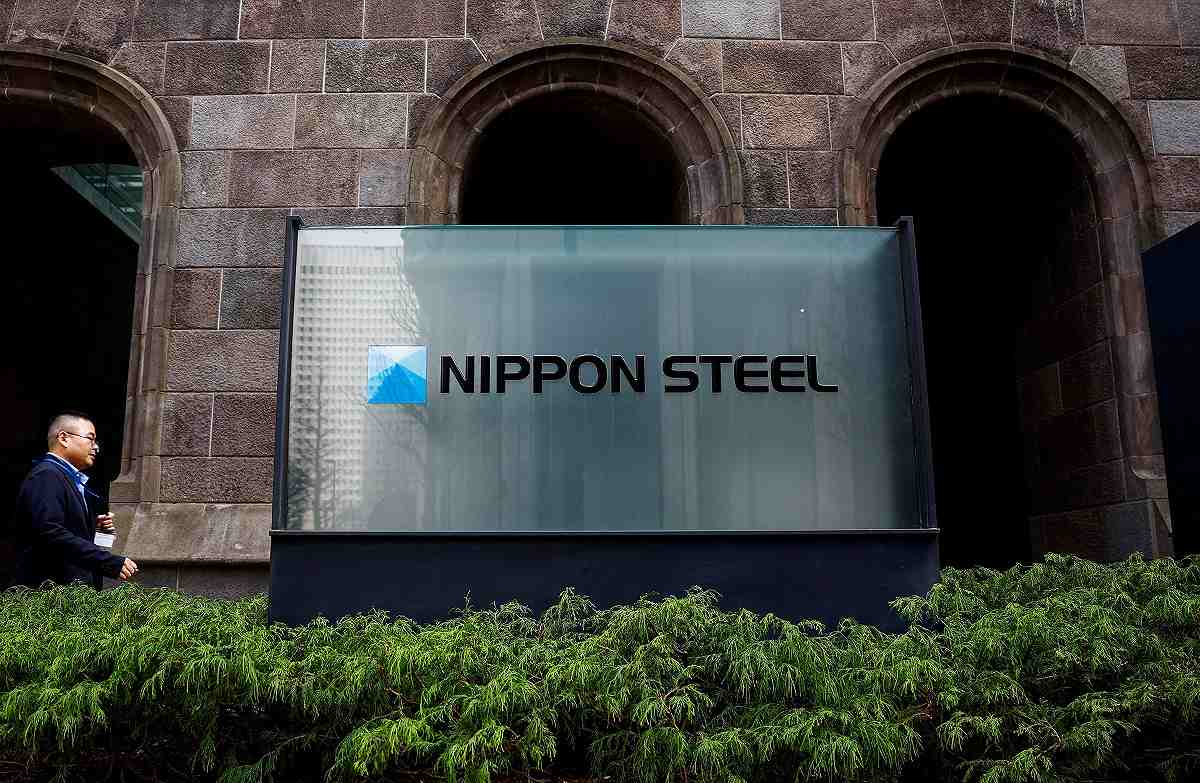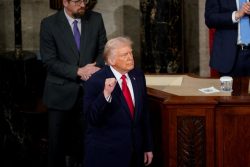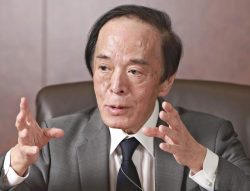
Nippon Steel logo is displayed at the company’s headquarters in Tokyo, Japan April 1, 2024.
16:56 JST, September 6, 2024
WASHINGTON, Sept 5 (Reuters) – Nippon Steel’s proposed $14.9 billion takeover of U.S. Steel would create national security risks because it could hurt the supply of steel needed for critical transportation, construction and agriculture projects, the U.S. said in a letter sent to the companies and seen by Reuters.
The letter cited a global glut of cheap Chinese steel, and said that under Nippon, a Japanese company, U.S. Steel would be less likely seek tariffs on foreign steel importers.
The Committee on Foreign Investment in the U.S. (CFIUS) said in its 17-page letter sent Saturday to Nippon Steel 5401.T and U.S. Steel X.N, and first reported by Reuters, that decisions by Nippon could “lead to a reduction in domestic steel production capacity.”
CFIUS added “U.S. Steel’s decisions in (trade) cases will be influenced by Nippon Steel and may take into account Nippon Steel’s commercial interests and competitive position in the global steel market.”
The letter provided a first glimpse of the national security grounds that the Biden administration could use as a basis for its expected move to block the merger, even as the companies and many industry experts questioned the strength of the arguments.
CFIUS appeared to be “significantly expanding” its definition of national security risk, said Sarah Bauerle Danzman, a professor at Indiana University and a fellow at the Atlantic Council.
“While the resilience of U.S. domestic steel capacity is clearly in the national interest, it is unclear how ownership by a firm domiciled in a major treaty ally would fundamentally threaten this,” she said.
Many Republican and Democratic lawmakers have voiced opposition to the deal. Vice President and Democratic presidential candidate Kamala Harris said on Monday at a rally in Pennsylvania, the swing state where U.S. Steel is headquartered, that she wants U.S. Steel to remain “American owned and operated.” Her Republican rival Donald Trump has pledged to block the deal if elected.
According to CFIUS, China’s “persistent use of market- distorting government interventions” has allowed the country to unfairly gain dominance in the global steel market, as it exports extensive surplus steel that artificially lowers international prices.
It cited 2022 data that showed China produced about 54% of total global crude steel and was the largest exporter.
While U.S. Steel has aggressively petitioned for trade relief against foreign imports, Nippon Steel has at times opposed U.S. efforts for relief, CFIUS said.
In a 100-page response letter seen by Reuters and sent Tuesday, Nippon Steel said it will invest billions of dollars to maintain and boost U.S. Steel facilities that otherwise would have been idled, “indisputably” allowing it to “maintain and potentially increase domestic steelmaking capacity in the United States.”
Echoing previously made statements, Nippon also said it would not transfer any U.S. Steel production capacity or jobs outside the U.S. and would not interfere in any of U.S. Steel’s decisions on trade matters, including decisions to pursue trade measures under U.S. law against unfair trade practices.
Nippon even proposed a national security agreement, aimed at assuaging CFIUS concerns. It also pledged that a majority of U.S. Steel’s board of directors will be non-dual U.S. citizens, including three independent directors approved by CFIUS to oversee compliance with the agreement.
“Nippon is throwing a financial lifeline to U.S. Steel while allowing it to remain led and managed by U.S. persons with government oversight,” said Nicholas Klein, a CFIUS lawyer with DLA Piper. “I would think that CFIUS could mitigate the risk of reduction in steel production capacity through supply assurance and other common mitigation measures.”
The committee, which reviews foreign investments for national security threats, also sees risk arising from Nippon’s growing presence in India, where production costs are much lower than in the U.S.
“Nippon Steel has no economic incentive to, and will not, import Indian-origin or other non U.S.-origin steel into the United States to compete with or undermine U.S. Steel, which would directly contradict the basis for Nippon Steel’s multi-billion dollar investment,” the companies countered in their Tuesday letter.
Top Articles in News Services
-

Survey Shows False Election Info Perceived as True
-

Hong Kong Ex-Publisher Jimmy Lai’s Sentence Raises International Outcry as China Defends It
-

Japan’s Nikkei Stock Average Touches 58,000 as Yen, Jgbs Rally on Election Fallout (UPDATE 1)
-

Japan’s Nikkei Stock Average Falls as US-Iran Tensions Unsettle Investors (UPDATE 1)
-

Trump Names Former Federal Reserve Governor Warsh as the Next Fed Chair, Replacing Powell
JN ACCESS RANKING
-

Producer Behind Pop Group XG Arrested for Cocaine Possession
-

Japan PM Takaichi’s Cabinet Resigns en Masse
-

Man Infected with Measles Reportedly Dined at Restaurant in Tokyo Station
-

Israeli Ambassador to Japan Speaks about Japan’s Role in the Reconstruction of Gaza
-

Videos Plagiarized, Reposted with False Subtitles Claiming ‘Ryukyu Belongs to China’; Anti-China False Information Also Posted in Japan























